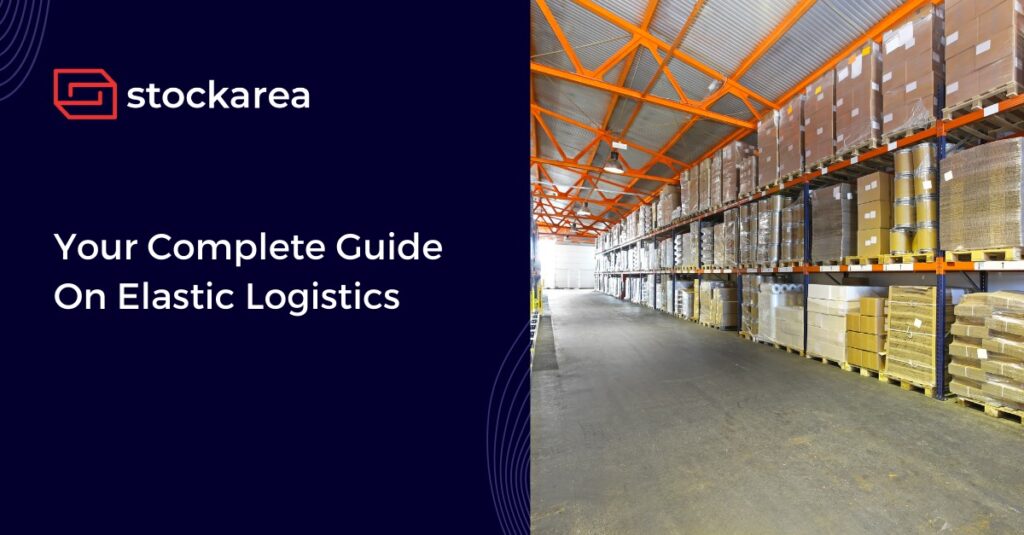Elastic logistics refers to a business model that is adaptable and flexible enough to scale up or down in response to market conditions, which enables supply chain operations to expand or contract based on market forecasts. In other words, elastic logistics is the capacity to scale logistics operations and resources so that they are effective during periods of high demand while remaining cost-efficient during periods of low exit order volume.
Elastic logistics and supply chain forecasting work together to provide a flexible infrastructure that can cut costs and increase efficiency based on the supply chain’s current requirements. Without elastic logistics, an organization is frequently compelled to function at a lower capacity in order to meet fluctuating increases in demand.
Who requires Elastic Logistics?
Many industries favour elastic logistics because it allows them to utilize infrastructure such as third-party logistics and on-demand warehousing to respond to market variations. One way to classify the industries that benefit from elastic logistics is to analyze that they are typically customer-centric. While this may seem like a logical process for all industries, elastic logistics aren’t required where price fluctuations are rare, where demand is largely stable, and where products are difficult to transport: mining and quarry products and large-scale agricultural outputs are obvious examples of industries where elastic logistics aren’t particularly useful because they aren’t substantially customer-driven.
Benefits of Elastic Logistics
The expansion of elastic logistics increases the requirement for organizations to adopt agile operations and procedures. Moreover, the arrival of AI, IoT, analytics, and drones will undoubtedly affect the future of logistics. These advancements have compelled logistics organizations to become more adaptable and dependable. Adopting elastic logistics has become a key consideration in light of the escalating unpredictability of demand swings and the growing necessity to sustain outstanding user experiences.
1. Demand and consumer satisfaction
The ability to scale up and down operations on the spot is an immediate benefit of elastic logistics. Organizations can quickly reduce risk and expense and enables customers to receive their orders on time. Elastic solutions boost customer satisfaction because customers can follow their deliveries in real-time and readily modify any necessary information.
2. Cost-saving
Utilizing elastic logistics in supply chain management reduces and eliminates supply chain operations, which increases cost savings. This is accomplished by reducing workload, transportation, and delivery processes to accommodate the increasing volume of demand, resulting in no financial loss and actual cost savings.
3. Route Optimization
Following artificial intelligence in elastic logistics, route optimization benefits supply chains and logistics firms. To remain competitive in this industry, businesses rely on technological tools and logistics operations to stay top of their game. Transportation management systems can optimize routes by utilizing elastic logistics to identify the most efficient, sustainable, and dependable delivery route. This allows outbound shipments to be routed via the optimal route based on anticipated risks. Deliveries are dispatched strategically to avoid the danger posed by inclement weather, increase delivery speed based on congestion, and cut expenses through less fuel usage, enhancing sustainability.
Related posts
- Logistics Market In India
- Top 11 Freight Forwarders In India [2024]
- Navigate Supply Chain Disruptions With Digitalization
- 5 Key Differences Between Supply Chain Management & Logistics
- Top 10 Advantages Of Demand Forecasting
- Top 10 Shipping Companies In Mumbai
- What is Logistics?
- The Ultimate Guide On Third-Party Logistics (3PL)
- List Of 11 Best Logistics Companies In India
- What Is Transportation Management System?
- 10 Key Benefits Of Transportation Management System (TMS)
- 10 Practical Tips To Reduce Warehouse Costs
- 6 Effective Ways To Grow Your Logistics Business
